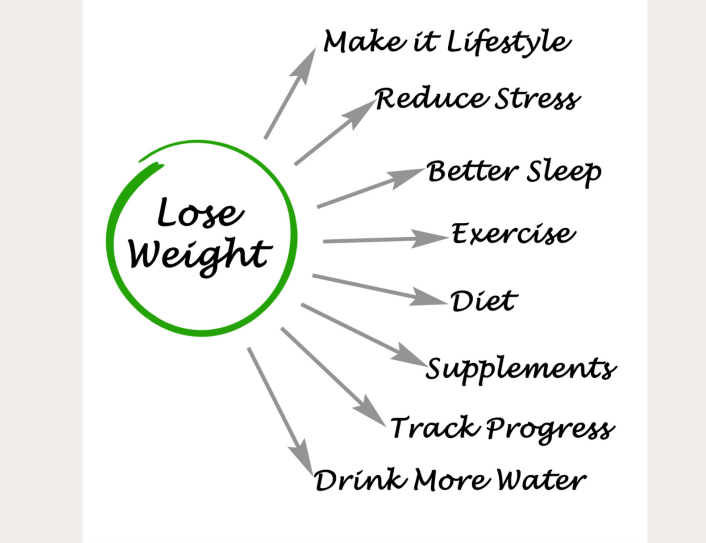
Understanding the Fundamentals of Natural Weight Loss
Natural weight loss is a journey that focuses on sustainable, healthy habits rather than quick fixes. By understanding the fundamentals of how our bodies work and making informed choices, we can achieve lasting results. This guide will help you navigate the essential elements of natural weight loss, from understanding the science behind it to creating a sustainable lifestyle.
Defining Natural Weight Loss: What It Is and Why It Matters
Natural weight loss involves losing weight through healthy eating, regular physical activity, and behavioral changes without relying on supplements, medications, or extreme diets. It emphasizes long-term health benefits, such as improved metabolism, balanced hormone levels, and reduced risk of chronic diseases. Understanding natural weight loss is crucial because it promotes a healthier lifestyle that can be sustained over time, unlike many fad diets and weight loss supplements that often lead to temporary results.

The Science of Weight Gain and Loss: Metabolism, Caloric Intake, and Expenditure
Weight gain and loss are influenced by the balance between consumed and expended calories. Metabolism is key, as it determines how efficiently your body converts food into energy. A higher metabolic rate burns more calories, while a lower rate burns fewer. To lose weight naturally, it is essential to understand how caloric intake and expenditure affect your body. By consuming fewer calories than you expend, you create a caloric deficit, which leads to weight loss.
Common Myths and Misconceptions about Natural Weight Loss There are many myths about weight loss, such as the idea that you can target fat loss in specific areas of your body or that skipping meals will help you lose weight faster. Another common misconception is that all calories are the same, regardless of their source. In reality, the quality of the calories you consume matters just as much as the quantity. You can approach weight loss with a more informed perspective by debunking these myths.
Setting Realistic and Achievable Weight Loss Goals
Setting realistic goals is crucial for long-term success. Instead of aiming for drastic changes, focus on losing 1-2 pounds per week, which is a healthy and sustainable rate. Setting smaller, achievable goals can help maintain motivation and prevent discouragement. Tracking your progress and celebrating milestones can also keep you motivated on your weight loss journey.

Nutrition: The Cornerstone of Natural Weight Loss
The Role of Whole Foods and a Balanced Diet in Weight Management
Whole foods, such as fruits, vegetables, whole grains, and lean proteins, provide the nutrients your body needs without the added sugars and unhealthy fats found in processed foods. A balanced diet that includes a variety of food groups ensures that you get the vitamins, minerals, and energy needed to support your metabolism and overall health, which is essential for natural weight loss.
Identifying Nutrient-Dense Foods to Incorporate into Your Diet
Nutrient-dense foods are rich in vitamins, minerals, and other essential nutrients while being relatively low in calories. Examples include leafy greens, berries, nuts, seeds, and lean meats. Incorporating these foods into your diet can help you feel fuller for longer, reduce cravings, and maintain a caloric deficit for weight loss.
Understanding Portion Control and Mindful Eating
Portion control and mindful eating are vital strategies for managing caloric intake. By being aware of portion sizes and eating slowly, you can better recognize hunger and fullness cues, preventing overeating. Mindful eating also encourages a deeper connection with your food, helping you appreciate the flavors and textures while promoting healthier eating habits.
Hydration and Its Importance in Weight Loss
Staying hydrated is essential for overall health and can aid in weight loss by boosting metabolism and reducing hunger. Sometimes, our bodies can confuse thirst with hunger, leading to unnecessary snacking. Drinking water throughout the day helps maintain energy levels, supports digestion, and can prevent overeating.
How to Create a Sustainable Meal Plan
Creating a sustainable meal plan involves incorporating a variety of nutrient-dense foods, practicing portion control, and allowing flexibility to enjoy your favorite treats in moderation. Planning meals ahead of time can help you make healthier choices, reduce the temptation to indulge in high-calorie foods, and ensure that you stay within your caloric goals.

Exercise and Physical Activity: Moving Toward a Healthier You
The Benefits of Regular Physical Activity for Weight Loss
Regular physical activity helps burn calories, builds muscle, and boosts metabolism, all of which contribute to weight loss. It also offers numerous health benefits, including improved cardiovascular health, stronger bones, and enhanced mental well-being. Incorporating exercise into your daily routine can accelerate weight loss and improve overall health.
Types of Exercise: Cardio, Strength Training, and Flexibility
A balanced workout routine should include cardio, strength training, and flexibility exercises. Cardio exercises, such as running, swimming, or cycling, help burn calories and improve cardiovascular health. Strength training builds muscle mass, which increases metabolism and helps maintain weight loss. Flexibility exercises, such as yoga or stretching, improve mobility and reduce the risk of injury.
Creating a Personalized Workout Routine
To create an effective workout routine, consider your fitness level, goals, and preferences. Start with activities you enjoy to make exercise a consistent part of your lifestyle. Gradually increase the intensity and variety of your workouts to challenge your body and prevent boredom. A personalized routine ensures that your exercise plan is sustainable and enjoyable.
Overcoming Barriers to Staying Active
Common barriers to physical activity include lack of time, motivation, or access to facilities. To overcome these obstacles, set realistic goals, find a workout buddy, or try home-based exercises that require minimal equipment. Making small, incremental changes, like taking the stairs instead of the elevator, can also increase your activity level without requiring a significant time commitment.
Incorporating Physical Activity into Your Daily Routine
Incorporating physical activity into your daily routine can be as simple as walking or biking to work, taking short breaks to stretch, or engaging in active hobbies like gardening or dancing. These activities not only help you stay active but also make exercise a fun and natural part of your day.
Lifestyle and Behavioral Changes for Long-Term Success
The Importance of Sleep and Its Impact on Weight Loss
Sleep plays a crucial role in weight management by regulating hunger hormones and supporting metabolism. Lack of sleep can lead to increased hunger and cravings for high-calorie foods, making it harder to maintain a caloric deficit. Prioritizing sleep can improve your weight loss efforts and overall well-being.
Managing Stress and Emotional Eating
Stress and emotional eating can derail weight loss efforts by triggering cravings for comfort foods high in sugar and fat. Learning to manage stress through relaxation techniques, such as meditation or deep breathing, can help prevent emotional eating and support your weight loss journey.
Building a Support System and Setting Up Accountability
Having a support system can make a significant difference in achieving weight loss goals. Surround yourself with friends, family, or a weight loss group that encourages healthy habits and provides accountability. Sharing your goals and progress with others can help you stay motivated and committed to your weight loss journey.
Tracking Your Progress and Celebrating Milestones
Tracking your progress through a journal, app, or regular check-ins can help you stay focused on your goals and recognize the progress you’ve made. Celebrating milestones, such as losing your first five pounds or completing a fitness challenge, can boost motivation and reinforce healthy behaviors.
Sustaining Healthy Habits for Life
Sustaining weight loss requires long-term commitment and lifestyle changes. Focus on building healthy habits, such as regular physical activity, balanced nutrition, and mindful eating, that you can maintain for life. Remember that weight loss is a journey, not a destination, and the key to success is consistency and perseverance.
By understanding the fundamentals of natural weight loss and making gradual, sustainable changes to your diet, exercise routine, and lifestyle, you can achieve your weight loss goals and enjoy a healthier, more fulfilling life.
